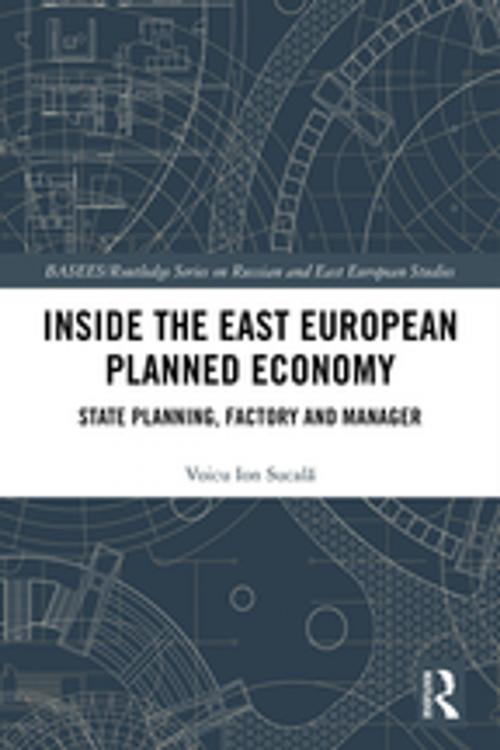Inside the East European Planned Economy
State Planning, Factory and Manager
Nonfiction, Social & Cultural Studies, Social Science, Cultural Studies, Ethnic Studies| Author: | Voicu Ion Sucala | ISBN: | 9781351654364 |
| Publisher: | Taylor and Francis | Publication: | March 9, 2018 |
| Imprint: | Routledge | Language: | English |
| Author: | Voicu Ion Sucala |
| ISBN: | 9781351654364 |
| Publisher: | Taylor and Francis |
| Publication: | March 9, 2018 |
| Imprint: | Routledge |
| Language: | English |
This book puts forward a new perspective on the planned economies of communist Eastern Europe, demonstrating in detail how economic practice in such countries was shaped by the interplay among planners, managers and Party apparatchiks. Based on extensive original research, including interviews with former employees of industrial enterprises, the book argues that shortages, chronic over-capacities and erroneous planning decisions were present from the very beginning, rather than the consequences of later plan mistakes. They were the natural outcome of a profound conflict between leaders’ attempt to adapt the basic laws of economics to their ideology and interests, and the requirements for rational bureaucracy of an increasingly sophisticated economy. The book discusses the evolution of and debates about the planned economy, considers the practice of plan development and implementation, and provides very detailed examples of how the planned economy actually worked at the level of the factory, at the point where plans and managers interacted with workers and production.
This book puts forward a new perspective on the planned economies of communist Eastern Europe, demonstrating in detail how economic practice in such countries was shaped by the interplay among planners, managers and Party apparatchiks. Based on extensive original research, including interviews with former employees of industrial enterprises, the book argues that shortages, chronic over-capacities and erroneous planning decisions were present from the very beginning, rather than the consequences of later plan mistakes. They were the natural outcome of a profound conflict between leaders’ attempt to adapt the basic laws of economics to their ideology and interests, and the requirements for rational bureaucracy of an increasingly sophisticated economy. The book discusses the evolution of and debates about the planned economy, considers the practice of plan development and implementation, and provides very detailed examples of how the planned economy actually worked at the level of the factory, at the point where plans and managers interacted with workers and production.















